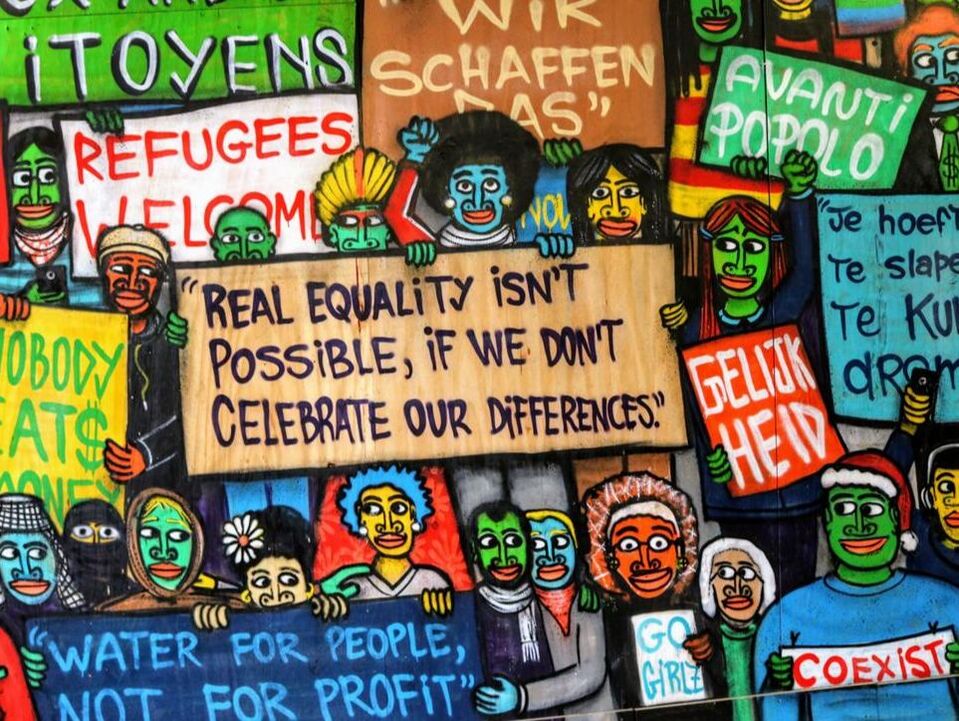|
|

Othering processes are inherently complex, and in forced migration contexts, national public discourses tend to reverberate with anxieties over antagonism, discrimination and increasing tensions.
As an alternative to this public discourse, which ultimately tends to associate migrants and refugees with social threat, we might examine pockets of private and semi-private spaces from which quieter voices – women’s voices, perhaps – could catalyse more positive attitudes and better informed perceptions with a gender lens. One space where such voices might emerge is in all-women ‘gün’ (or ‘day’) groups. These are periodic, informal gatherings of relatives, friends and/or acquaintances, usually hosted in one member’s home, and are crucial spaces for women’s interaction and socialisation in Turkey. In fact, in my Identities article, co-authored with Hatice Mete, ‘The afraid create the fear: perceptions of refugees by “gün” groups in Turkey’, we analysed conversations from several of these groups in Mersin in order to investigate local women’s perceptions of forcibly displaced Syrians.
What we found, however, were a set of recurring discursive patterns mirroring the public discourse – stereotyping, biased perceptions, ‘us’ vs. ‘them’, scapegoating, and discrimination – which were, if anything, more energetic in the private context. ‘We hate them’, fumed one participant, describing her Syrian neighbours’ apparent disregard for her apartment building’s rules and Turkey’s embattled norms of secular dress, and her circle exchanged approving looks.
What can explain this hostility for those ‘we’ deem as ‘different’ from ourselves? How deep is the declared lack of ‘compassion’ for the vulnerable? To what extent are expressions of contempt literal reflections of reality, or attempts to overdramatise narratives of imaginaries shaped mainly by fear of the ‘other’? Everyday conversations in private settings enable a flow of emotions which we express as we feel them. Yet the intensity of the expression may not always reflect the sincerity of the intention. Especially if, as in the case cited above, it comes from a woman who we know is, like ‘us’, actually compassionate, decent, law-abiding. Indeed, our research suggests that the tropes in the stereotyping and exclusion may have their source in the speakers’ anxieties about the spaces and relationships on which their lives are focused. Hence, Syrian women were criticised as ‘dirty’, threatening the home’s hygiene, as ‘greedy’ and ‘materialistic’, straining generosity, as ‘immoral’, tempting Turkish husbands to take an (illegal) additional Syrian wife, as ‘too fertile’, effortlessly replacing sons lost to national service and foreign interventions, as ‘disrespectful’ of their seniors, contrasting with (idealised) Turkish youth, and – perhaps most often – as ‘noisy’, advertising rather than minimising their disturbing presence. But underneath the noisy prejudice lay, perhaps, an anxiety about powerlessness: ‘It does not matter whether you’re a guest or a refugee’, declared someone triumphantly, ‘you have to observe us and abide by our rules. We don’t have to live in accordance with your rules’. When we have limited contact and difficulty in communicating with ‘others’ whom our societies have identified as a source of concern, our real individual neighbours can easily become faceless instances of a category; a blank canvas onto which we give ourselves permission to paint our least palatable emotions. Granted, suspicions remain, and are not helped by the persistence of the language barrier (on both sides) and the intersecting uncertainties in forced migration contexts. Yet if we carefully study these smears on the canvas, we may come to see how the fear of those who create and perpetuate fear can be healed and, perhaps, common ground discovered on which actual relationships could be built.
Blog post by Saime Ozcurumez, Bilkent University, Turkey
Read the full article: Ozcurumez, Saime & Mete, Hatice. The afraid create the fear: perceptions of refugees by ‘gün’ groups in Turkey. Identities: Global Studies in Culture and Power. DOI: 10.1080/1070289X.2020.1723311
0 Comments
Your comment will be posted after it is approved.
Leave a Reply. |
|
Explore Identities at tandfonline.com/GIDE |
|
The views and opinions expressed on The Identities Blog are solely those of the original blog post authors, and not of the journal, Taylor & Francis Group or the University of Glasgow.
